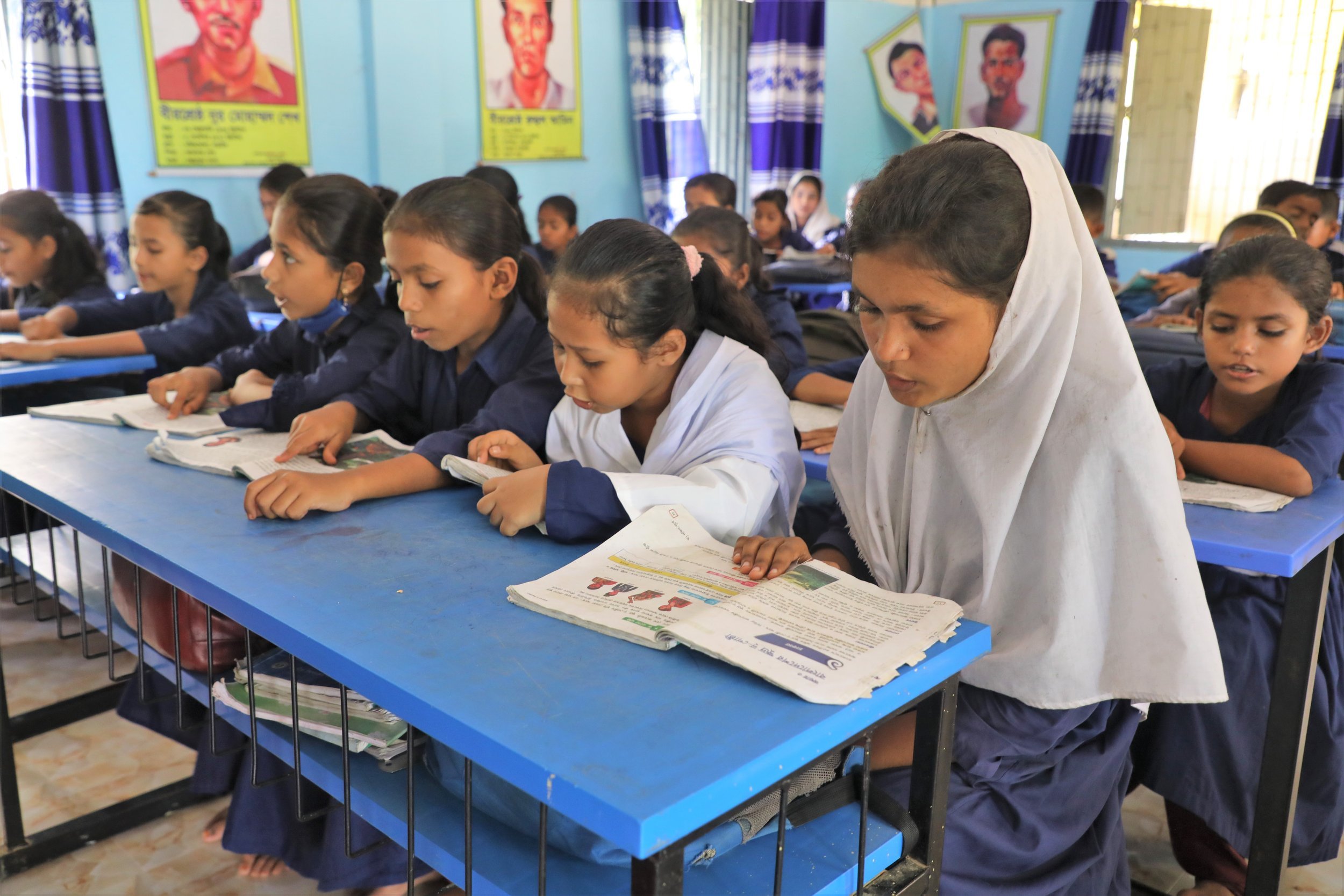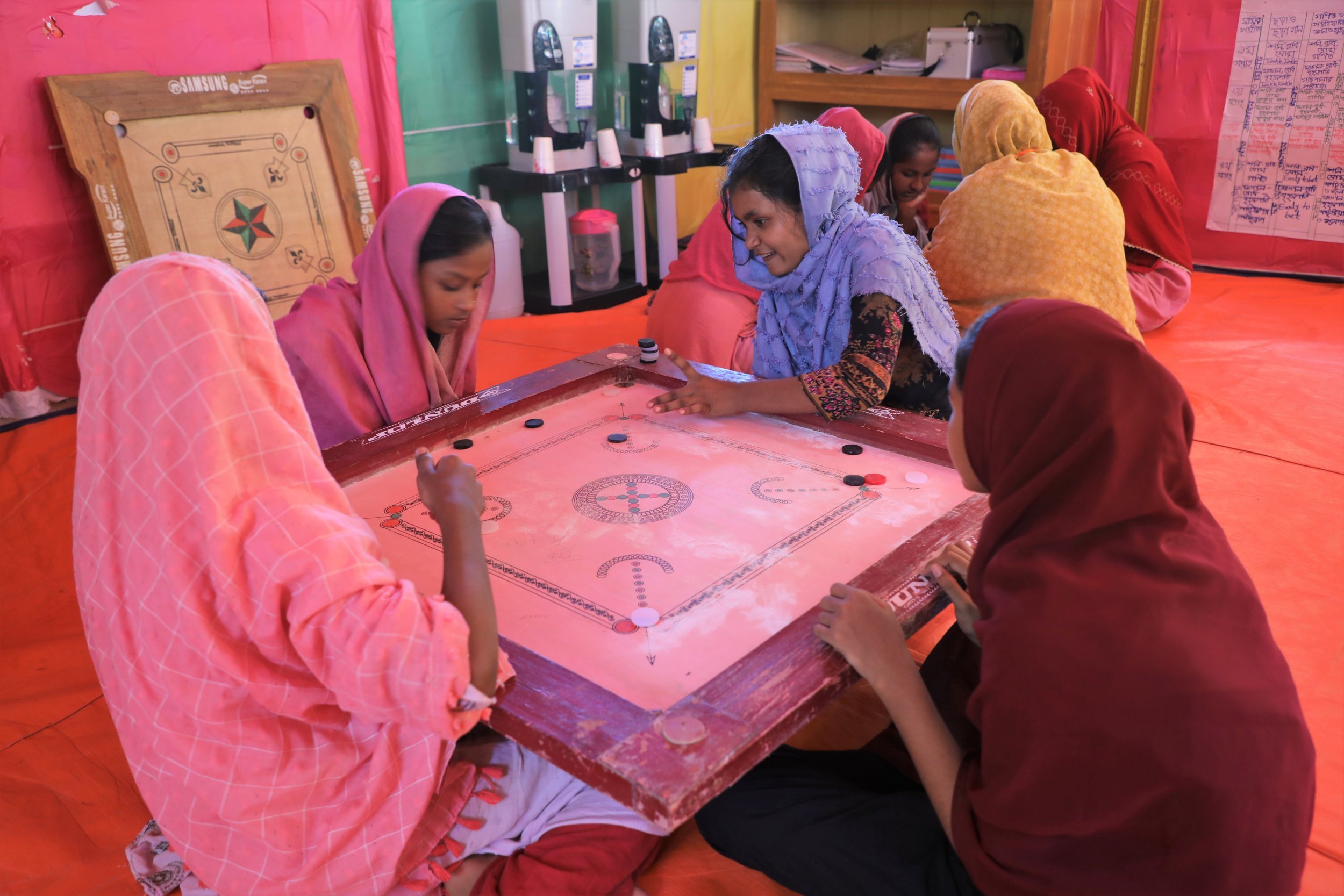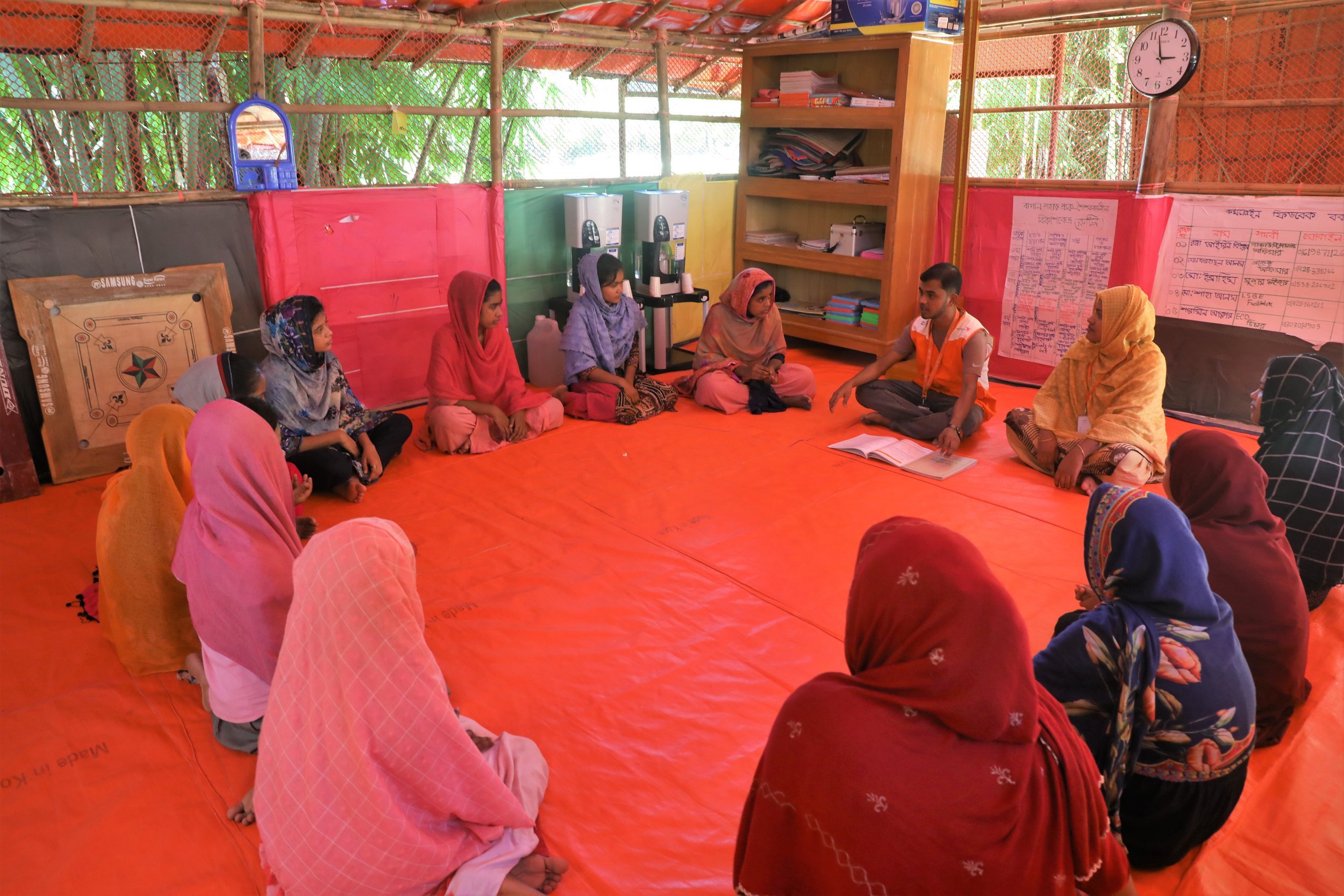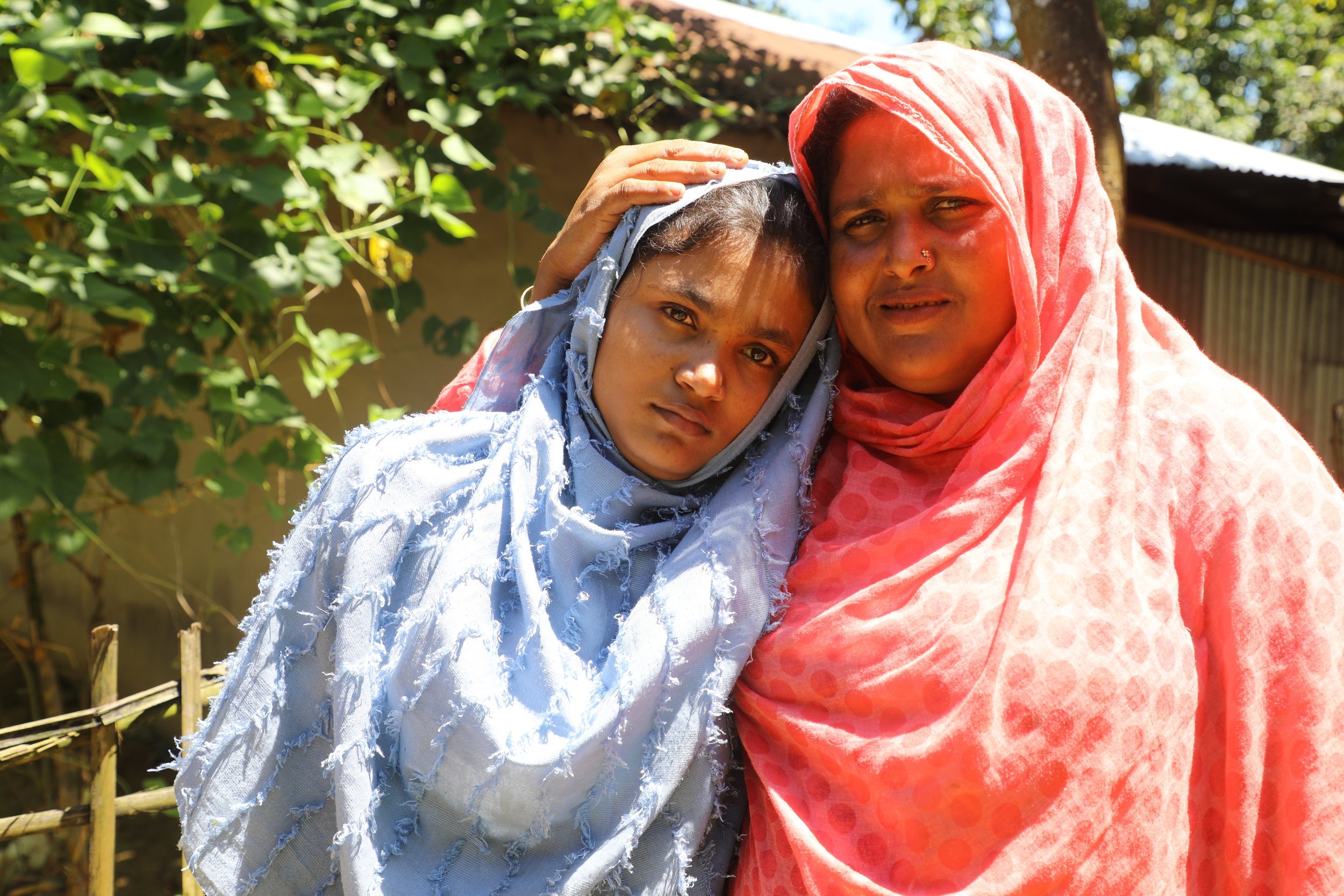For Rifa, a fresh chance at education and friendships after discrimination
Above: 12-year-old Rifa Akter, who has returned to school with support from an AHP and World Vision adolescents club. Photo: Md. Qazi Shamim Hasan, World Vision Bangladesh
For Rifa Akter, 12, living in poverty in a small village in Cox’s Bazar, Bangladesh, meant that her parents had limited options to access treatment for her communication disability.
After noticing Rifa would cry constantly and move her body differently to other infants, they sought out medical help, but were unable to afford ongoing treatment or medications.
Facing stigma, a lack of understanding and bullying from other children, and even adult neighbours, Rifa became more and more isolated, eventually dropping out of school in Grade 3 after struggling to cope in the classroom.
“She talked very rarely and could not mingle with other children of her own age,” said Khurshida Begum, Rifa’s mother. “If I asked her something, she never answered, but laughed.”
Rifa’s parents also faced abuse from neighbours.
“People living next doors made a lot of negative comments about her, just owing to her abnormal body language,” Khurshida said.
The judgemental comments made Khurshida think it was best to keep Rifa inside the house, further isolating her.
Through the AHP response in Bangladesh, partner World Vision set up a club for adolescents in Rifa’s village in 2021, where young people could come to play football, ludo, carom and other social activities.
World Vision also provided Life Skill Based Education (LSBE) sessions in the club. The Facilitator, Sah Alam, heard about Rifa from other community members.





“First up, her parents were unwilling to allow her to go to the adolescent club and tried to avoid us, but we managed to convince them,” said Sah Alam, who played a significant role in supporting Rifa’s engagement.
At first, Rifa was very shy and struggled to pay attention to sessions, and to communicate with others in the club, and she still faced bullying. But Sah Alam worked to change the attitudes of her classmates.
“In the sessions, we discussed disability and our role to support a person with a disability. Slowly, the other adolescents started to realise the situation and changed their behaviour towards Rifa,” he said.
“They became very friendly to Rifa and took her as a playmate. It impacted so much on Rifa that she also started to change quickly. Day by day, her communication was improving, and she started to talk with everybody.”
Seeing Rifa’s development, Sah Alam visited the local government primary school and talked to the teachers about enrolling her again. Now, Rifa is studying in Class 4 there and attends school regularly.
“I can see many changes in Rifa,” said Khaleda Begum, the school’s headmistress. “She is regularly in class and plays with classmates and is joyful. Her remembering ability has also improved. I am very happy about her changes.”
For Khurshida, who calls Rifa her “little princess”, seeing the transformation in her daughter has been joyful, and she becomes emotional when talking about the impact.
“Now, Rifa regularly goes to school and plays with other children. Whenever, I see her playing with other children, I feel I am the happiest person on earth!” she said.
The adolescents club in Rifa’s village is one of 25 established by World Vision with the support of the Australian Government through the Australian Humanitarian Partnership. The clubs, serving three host communities and two refugee camps, have 1480 adolescents enrolled, with an even split between boys and girls.


